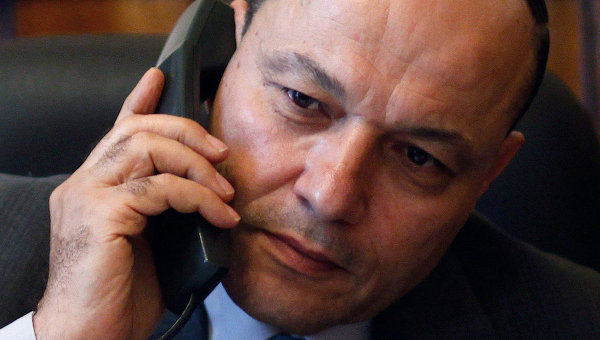Creative writing workshop encourages young writers to express themselves in their native language
CAIRO: In an attempt to resurrect a passion for Arabic writing, Maadi’s Kotob Khan bookstore recently launched a creative writing workshop for young Arabic speakers and writers-to-be.
The program examines the rough works of young Egyptian aspiring writers; around 12 participants, mostly college students in their early and mid 20s. The participants are enthusiastic (one medical student comes from Tanta especially to attend the workshops in Cairo). But some have expressed what they perceive as “a struggle to write in their native tongue as the interest and emphasis on foreign languages, with English topping the list, has increased across Egypt.
The participants often talk about difficulties facing them, such as a lack of confidence in their work and in their abilities, the difficulty of searching for “the right word or the “right expression during the course of the writing process.
The roundtable discussions and editing are usually held in a friendly and cozy atmosphere in the café area, located in the heart of the Book Market (as the name of the bookstore translates from Arabic) and moderated by the bookstore owner Karam Youssef and Yasser Abdel-Latif, a published poet and young professional writer.
The young writers show their work, read it aloud and pose questions. The work is reviewed by their peers and critiqued by the moderators as well as the other participants, who in turn pluck up the courage and come forward with their own personal writing.
Issues like structure, voice of the writer, envisioning the audience, placing the story in a specific place and time and connecting it to a larger context were all issues that came up during last week’s Wednesday session.
The moderators often gave examples from world and regional literary work, during the assessment process, and recommend readings from different genres.
“In order to write about the world, the writer has to know his [or her] self first, was one piece of advice Abdel-Latif gave the younger amateur writers. “Through this, you recognize your tone, you find your voice and it comes out throughout your writing.
“Reading your own history is also essential. Examine this, ‘What made me who I am?’ Abdel-Latif told the participants. “Talk about what’s personal, very personal. Confess and the people will believe you and relate [to your written words].
In an interview with The Daily Star Egypt, Abdel-Latif confesses that he does not regard himself as being on a higher level than the young writers who have come to learn from his experience.
“The relationship is not linear, he says.
During the workshop, the writers-to-be often present their own insight into the process of writing, at times agreeing and at others disagreeing with the moderators and their fellows.
Abdel-Latif said he perceived initiative and good potential from the positive discussions. “Some of the works are also very mature, and you see the personalities stemming out of the writings, he comments. “This group could produce two or even three very good writers, says Abdel-Latif. “It also gives me faith. I thought interest in Arabic literature had died here in Egypt but then I saw these people here, open-minded and young . and wanting to write in their own language.
“I’m also happy I could help these young people fulfill their urge and find their desire from language . because it is easy to get lost. Guidance is needed, he added.
Although for many of the participants, the workshop is a way to polish their writing skills and free the writer within, for others the activity of learning to write in their native tongue touches on deeper issues: identity, belonging or even a sense of nationalism.
“I want to learn Arabic – I want to learn it because I want to belong . and to be proud, says Dalia El-Abd, one participant.
For El-Abd, it was apparent that the creative workshop is a way of belonging to her Arabic roots, and to her own “pride as an Egyptian.
“This idea is a savior: to us, to the language, to the culture and to our way of thinking. It is swimming against the current, says El-Abd, further explaining her beliefs as to how the Egyptian media, education and culture are becoming more and more westernized and “alienated from the Arabic language and the culture it represents.
“People want to reach shore, get home. Unconsciously we feel out of place. That’s why there are trends towards religion and [learning] Arabic, she adds, “Because we’re trying to belong.

